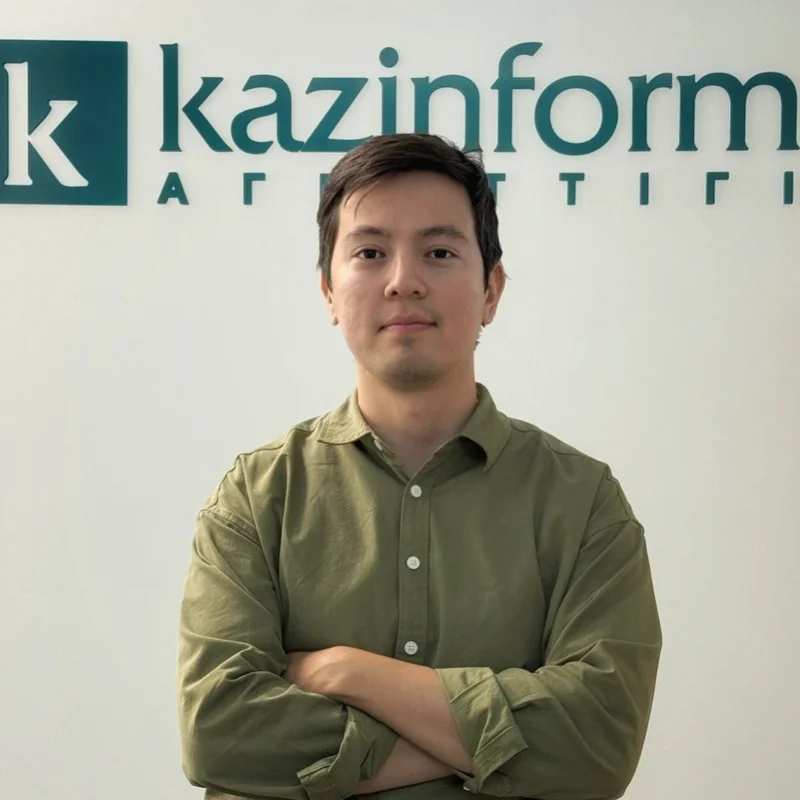On Schools 4.0 and education trends in Kazakhstan
On July 28, the global business forum "New Vision" was held in Almaty. One of the topics of discussion was the concept of "School 4.0" - a modern model of education aimed at integrating advanced technologies and innovative teaching methods to prepare students for the challenges of the future, Kazinform News Agency correspondent reports.

The Concept of School 4.0
Aidyn Rakhimbayev, Chairman of the Board of Directors of BI Group, emphasized the importance of School 4.0 as the most modern version of education. This concept includes not only digitalization, but also new teaching methods, where teachers and students learn from each other.
He notes that Italy plans to launch a program with 100,000 pupil places by 2025, a prime example of implementing School 4.0.
Learning can take place in any location, including parks, making education accessible anywhere in the world. An important component is the use of big data and other modern technologies, which makes the concept relevant to both developed and developing countries.
Bolat Tlepov, rector of Abai KazNPU, compared the school to a smart city:
"School 4.0 is education in the context of the fourth industrial revolution, called Industry 4.0. Personally, I would compare School 4.0 to a smart city, where every element of urban infrastructure, from traffic lights to park areas, serves the interests of the resident. In School 4.0, that resident is the student," Tlepov notes.
Digital and AI Revolution
Algazy Kussainov, chairman of the Supervisory Board of the “International Educational Corporation KazGASA and KAU, noted that School 4.0 prepares students for new challenges and opportunities of the digital and AI revolution. Each student needs an individualized plan, as each child has unique talents.
Interdisciplinary learning such as PBL (problem-based learning) integrates different sciences in one case study, which promotes a deep understanding of subjects.
"It is important to develop emotional intelligence and nurture moral values in children so that they are happy and properly educated," says Kussainov.
Portrait of a New Student
Berik Kaniyev, chairman of the Board of Directors of JSC “Lancaster Group Kazakhstan”, emphasized the need to create a new portrait of a student who will have not only hard skills, such as knowledge in physics or mathematics, but also soft skills, such as creativity and empathy.
He adds that a new student should be open to new knowledge and constantly strive to learn and progress.
"We need to look into the future and understand what the industry will be like. The industry will definitely include artificial intelligence. Today, we need the technological infrastructure to utilize AI properly. Unfortunately, some schools and regions still lack infrastructure, especially in terms of the internet. If we lag in this regard, we will not be able to provide full-fledged analytics and database… We must prepare a student who will be open to new knowledge. Schools should be such that a person constantly wants to learn. AI and other new technologies will force us to constantly learn and progress. If we create such a student, Kazakhstan will have a great future," says Kaniyev.
On school subjects inKazakhstan
Rakhimbayev raised the issue of overloaded curricula in Kazakhstan. He noted that in middle schools in South Korea and Singapore students study 13-16 subjects, while in Kazakhstan this number reaches 23. In high schools in South Korea, Singapore and Japan students study 6 subjects, while in Kazakhstan - 14.
“This leads to a lack of focus, and the system needs to be reformed,” notes Rakhimbayev.
On Kazakh-speaking schools
The Chairman of the Board of Directors of BI Group also noted the need to improve the system of teaching and learning in the Kazakh language.
“In Kazakh-speaking classes and schools, the level of reading literacy is, unfortunately, lower. It seems to me that there needs to be a lot of emphasis on improving the teaching and learning system. Of course, I would like most schools to be in the Kazakh language, so that children can receive quality education in their native language,” adds Rakhimbayev.
On Universities and Colleges
Kaniyev noted that if a student has talent in the field of art or music, he does not have to go to a physics and mathematics school. The Chairman of the Board of Directors of Lancaster Group Kazakhstan JSC believes that it is important to develop the talents of students in those areas where they show the greatest potential.
Rakhimbayev added that not all students need to go to universities.
“When it comes to preparing children for the future, I agree that not everyone needs to go to university. Let's look at the German system, where technical education colleges are developed. A person first goes to a technical college after school, gains experience, and then, if necessary, continues his studies. Most choose this path. Unfortunately, we have a trend that going to university is the most important thing, regardless of the quality of education,” says the chairman of the Board of Directors of BI Group.
Teachers of Kazakhstan
Rakhimbayev expressed concern about the state of teachers in Kazakhstan. He noted that 80% of teachers in the southern regions have correspondence education:
"In general, the situation with teachers in Kazakhstan is sad. According to statistics, 80% of teachers in the southern regions of the country have correspondence education. This suggests that in certain years the work of a teacher has lost prestige and teachers have lost interest."
He also noted that there is a need for more creative teachers with leadership skills who can hold the attention of the next generation of children.
"The teacher must be a school leader, a creative leader, and also able to hold the attention of the next generation of children. Previously it was believed that 45 minutes was the time a person could hold attention, but this is outdated information. Now this time has been reduced to 15 minutes," added the BI Group chairman.
Kazakhstani Model of Education
When asked how he sees the Kazakhstani model of education Rakhimbayev said:
"We need to take the best of all systems. The Estonian model can serve as an example. We had the same start as the post-Soviet states, but they made a breakthrough with fewer resources. At the same time, they did not follow one system, but took the best from the Finnish, European and American systems. The second important area is the issue of education and values. We have a very polite and correct culture. Many foreigners, when they come here, note that we have friendly people. This should be used so that our children will be as well-mannered and cultured."
